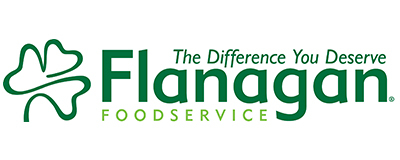
We collect basic website visitor information on this website and store it in cookies. We also utilize Google Analytics to track page view information to assist us in improving our website.

In the digital age, a restaurant’s success doesn't just depend on the quality of its food but also on its online visibility. Search Engine Optimization (SEO) is a key ingredient in your marketing strategy, enhancing your online presence and ensuring that hungry diners find their way to you. Whether you're a new restaurant owner looking to establish an online presence or a seasoned pro aiming to revamp your SEO efforts, understanding these basics can significantly impact your online success.
Local Keyword Research Is Your Best Friend
First things first, identify and utilize local keywords that potential customers are likely to use when searching for a place to eat. You're not just a restaurant; you're a local business that serves a specific community. Incorporate local terms such as your city, neighbourhood, or nearby landmarks into your website's content. For example, if you run a pizza restaurant in Whitby, it makes sense to include keywords like "Whitby pizza," "best pizza in Whitby," and "pizza delivery near [local landmark]."
Optimize Your Menu for Search Engines
Your menu is not just a list of dishes; it's a goldmine of keywords waiting to be discovered by search engines. When creating your online menu, ensure each item has a descriptive title with common keywords related to the dish. If you serve a unique dish not often found elsewhere, be sure to include that in your menu, too. Search engines love unique and specific content.
Local SEO Directories and Citations
Consistency in online listings across different platforms significantly impacts your restaurant's search rankings. Ensure that your business’ Name, Address, and Phone Number (N.A.P.) is consistent across all listings and directories. Explore local SEO directories like Google My Business, Yelp, and TripAdvisor. Regularly update this information, and don’t forget to add photos and keep your business hours current to stay relevant.
Leverage Customer Reviews for SEO Impact
Encourage reviews on Google My Business, Yelp, and other platforms to boost your online credibility. Positive reviews signal to search engines that your restaurant is popular and business worth promoting. Be sure to respond to reviews—both the positive and the less so—to show that you value customer feedback (Google, the most popular search engine, recommends responding to reviews to improve your local SEO).

Mobile Optimization is Non-Negotiable
In a world where mobile searches often surpass desktop, a mobile-friendly website is essential for SEO success. Mobile optimization ensures that visitors have a pleasant experience, which is a factor in Google's ranking algorithm. It's also important for users to find your restaurant easily on their phones, especially when they’re out and about looking for a place to eat. Do you need help with your website? Brand Points Plus members can use points to offset this cost plus get a discount. If you're not a member of Brand Points Plus click here.
Promote Local Events and Offers on Your Site
If your restaurant hosts events or has special offers, create web pages dedicated to these topics, and optimize them using local keywords. This can attract visitors looking for something to do or a good deal in your area.
On-Page SEO Tactics for Your Website
Once you have your local keyword and content strategy sorted, focus on traditional on-page SEO tactics:
Meta Titles and Descriptions: Craft compelling meta titles and descriptions that include local keywords and entice click-throughs from potential diners.
Header and Content Tags: Use H1, H2, and H3 tags to structure your content properly. Include keywords in these headers and throughout your content but remember, keep it natural.
Content Quality: High-quality, informative, and engaging content is key. Write blog posts about local food trends, behind-the-scenes looks at your restaurant, or staff profiles, all while integrating those local keywords.
Page Load Speed: Ensure your site loads quickly on desktop and mobile devices. Search engines like Google prioritize sites that provide a good user experience.
Internal Linking: Link related pages of your website together. For example, if you have a blog post about the best brunch spots in the area, link to your brunch menu. This not only helps with navigation but also improves SEO.
SEO may seem daunting but breaking it down into actionable tasks makes it more manageable, and most importantly, effective. You don’t need to reach for perfection, instead reach for progress. Happy optimizing!

